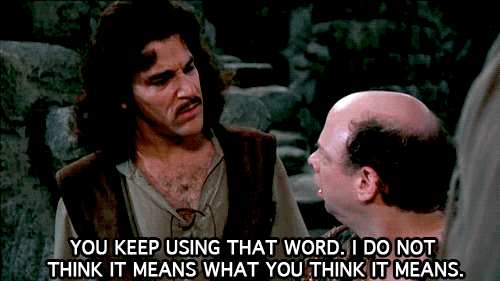The Dirty Truth About Innovation

What does “innovation” mean to you?
If you bring six product leads into a room and ask this question, you’ll get six different answers.
This may seem odd for a word that’s so widely used, but the truth is that the word “innovation” means something different to just about everyone. It’s possible to have long conversations about it in which everyone thinks they are talking about the same thing, but they are not.
Over the many years I’ve worked in innovation strategy and product management, I’ve grown to dislike the word. It’s too woolly, too easy to use as an excuse for saying No or, sometimes worse, for saying Yes.
When asking about a definition of "innovation", most responses are along the lines of:
- Creativity
- Uniqueness
- Invention
- Disruption
Let's Break These Down
Creativity is my least favourite of the bunch, and it is also the most frequently given answer. Are you creative? Am I? Is the person sitting to your right? If they cannot draw, paint, sing, act, make music, write poetry – are they creative? If you ask the people around you whether they think of themselves as creative people, you might be surprised how many people tell you they are not.
Someone once told me that he thinks only about 10% of people are capable of being creative. To me, it is like saying that 90% of the world’s population have no inner lives or capacity for original thought. To him, perhaps he meant that only 10% of people can make original and important art. (Although “original” and “important” are at least as problematic.)
But grumpy people aside, “creativity” is another word that means different things to different people, and it is laden with preconceptions. I can say with full honesty that I have seen many innovative ideas emerge from people who would never describe themselves as creative.
Uniqueness is also troublesome as a synonym for “innovation”, as it is even more limiting than “creativity”, albeit with a clearer definition. But truly, since the creation of the wheel, is anything actually unique? If you disagree, I recommend Kirby Ferguson’s excellent series Everything is a Remix.
Invention is such a lovely word, and I wish it were used more often. However, a problem with using “invention” interchangeably with “innovation” is that you can innovate on an existing product or process, but you cannot invent on one. Adding chocolate sprinkles to buttered toast is a delicious innovation, but you would be hard pressed to call it an invention.
Disruption is interesting because it leads to discussions on different classifications of innovation, of which disruptive innovation is one. The most common type of innovation, however, is incremental innovation, which is the process of iterating on, improving or adding to existing products and processes - no disruption involved.
And as we know, all companies should strive for innovation, but disruption does not usually arise from within companies – it comes like a sneak attack through the drain pipe when you’re not looking. You can’t expect to get disruptive ideas from internal innovation labs and programmes - that bar is not only too high, it is on the wrong landmass.
An innovative product can be creative, unique, an invention and disruptive, but it does not have to be. However, people often equate one or more of these terms to “innovation”, and as such we should make an effort to very clearly define what it is that we are talking about when we talk about it.

So What?
Why should we care about the definition? Are we just being pedantic?
No, because if you cannot define something, then you cannot:
- Measure it. And if you cannot measure it, you will never be good at it, as you will not know what good means.
- Minimise subjectivity. Everyone’s understanding of the world is a bit different from everyone else’s. So if you say something isn’t innovative and you mean creative, you might be discounting something based on an unconscious bias around what is/isn’t creative.
Consider the below. When running an in-house incubator, I sometimes got this line as a reason why an idea should not progress further:
“We should not do it because it’s not innovative.”
Looking at this statement through the prism of people’s common definitions of “innovation”, you get:
“We should not do this because it is not creative.”
“We should not do this because it is not unique.”
“We should not do this because it is not a new invention.”
“We should not do this because it is not disruptive.”
If we limited ourselves to only working on ideas that passed some of these definitions, we would get very little done and we would be turning our backs on some excellent ideas. An appropriate answer to any of the above is “So what?”
Let’s Try This on for Size
Adding new value is the definition I try to steer people towards. It is still a little fuzzy around the edges (what is “value”, after all?), but it can slot into a conversation about whether or not something is innovative.
Using my preferred definition with our example above:
“We should not do this because it does not add new value.”
That is useful. It turns a subjective statement into a quantifiable one.
Your definition does not have to match mine to be effective in your organisation. What matters here is that you all share a common definition. It could be “innovation for our company means turning everything blue” and that’s weird, but OK. Because everyone then understands what someone says when they say, “Let’s change this, it’s not innovative enough.” Make it more blue!
Closing Thoughts
If you have gotten to the end of this article (why, hello there!) and are wondering why someone who works in the innovation field is arguing against the use of “innovation”, I should explain. I started doing the work I do before I had the title; I had to find a title that fit the work. I researched other people who do similar work and found titles like Head of Product Innovation , Head of Creative Labs, Digital Catalyst, iGaming Futurologist, Head of Global Trends and Futuring , Digital Prophet and Global Innovation Strategy Manager. Although the word is problematic, I settled on Head of Innovation Strategy at the time because as a title it means roughly the same thing to most people: I work to turn new ideas into products and I explore the potential of new technologies.
When hearing from self-described innovation experts, especially those with "futurist" or "prophet" in their titles, I am sometimes reminded of this episode from the cancelled-too-soon show Better Off Ted.
There are some exceptional thinkers in this field (I would argue there are also good doers, although they may be hiding in product management roles), but because of the slipperiness of the term, the door is open to people who think "products are for people who don't have presentations." And when everyone has a different definition for what the term means, the success or otherwise of the work done by people in the field cannot be judged or measured.
In closing, think twice about using the terms “innovation” or “innovative” in your company. If there is another word with a clearer definition, use that instead. If you do choose to use the term, make sure you come up with a definition for it that works within the context of what you are trying to accomplish. Maybe that is my definition, maybe someone else's, maybe it is entirely your own invention - it does not matter as long as it is measurable and everyone is on board with what it means.